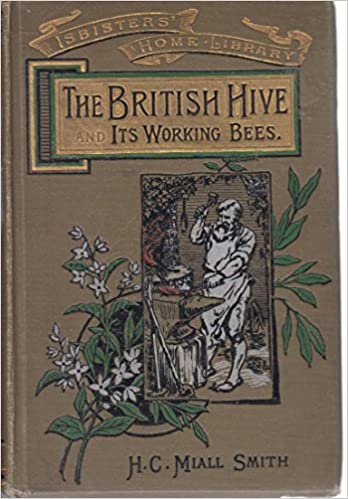

Hilda Caroline Miall-Smith was a teacher and activist, a graduate of University College London, and a member of the London School Board. Miall-Smith was on the executive committee of the International Ethical Union (a forerunner of Humanists International), as well as of the First International Moral Education Congress. Both she and her husband, George Augustus Smith, chaired at various times the council of the Ethical Union (now Humanists UK), and both were active advocates of non-theological moral education in schools.
Hilda Caroline Miall was born in Islington, London on 6 December 1860, the second of six daughters born to Charles Miall, editor of the Nonconformist, and Mary Catherine (née Williams ). She attended the North London Collegiate School, and enrolled at University College London in 1881 to study Philosophy. After graduating, she taught at North London Collegiate School until her marriage in 1887 to George Augustus Smith, a millinery warehouseman.
Miall-Smith was politically active for the Liberal and Labour parties, and part of the Women’s Group of the Fabian Society. For the latter, in 1910, she chaired the Citizenship sub-committee, which sought to investigate the role of women in local government. Miall-Smith also advocated for the introduction of a state pension for those over 65.
In 1902, addressing an audience involved in ‘technical instruction’, Miall-Smith suggested that ‘girls should be taught to think for themselves and make use of their scientific knowledge,’ bringing a feminist and freethinking approach to the education of women in cooking and crafts. She added that the aim of education should be ‘to help to build the foundation of the future state deep in the character of its citizens.’ This was modelled in the life of her daughter, Dr. Gladys Miall-Smith, whose refusal to resign from her medical post upon marriage in 1921 attracted national attention, and became a key case in the removal of the marriage bar for women. Gladys went on to be Welwyn Garden City’s first doctor, working for decades to improve standards of health in the town.
Miall-Smith served on the St. Pancras Vestry for 2 ½ years, and for 3 ½ on the London School Board, as well as on the St. Pancras Board of Guardians. In 1912, she was instrumental in establishing the Islington branch of the Women’s Local Government Association, an organisation formed in 1888 to support the election of women to local government.
Hilda Miall-Smith and her husband George Augustus Smith were both active members of the Union of Ethical Societies. George authored a pamphlet for the Union entitled ‘A Humanist Religion’ and was an editor of The Humanist. Both Hilda and George were vocal supporters of non-theological moral education, on which Hilda lectured and advised. George was part of a deputation in 1899 to present a petition to the School Board challenging the idea that most parents were happy with schools’ teaching of the Bible. Other members of the group (and activists with the ethical societies) included feminist writer Zona Vallance, future Prime Minister James Ramsay Macdonald, and Ethical movement leader Stanton Coit.
Hilda Miall-Smith died in Hertfordshire in 1943.
Hilda Miall-Smith epitomises the freethinking, forward-looking, and socially conscious women who were actively involved in the early stages of the organised humanist movement in the UK. In her efforts towards secular moral education in schools, rather than religious instruction, Miall-Smith helped forge a path for the ongoing work of Humanists UK today in working for inclusive, representative education. In her work for social reform and charitable causes, led by compassion for humanity rather than any supernatural concern, she was deeply humanist.
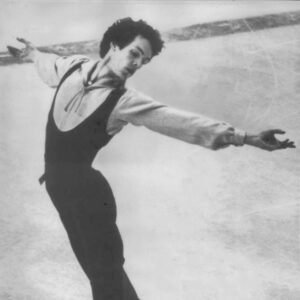
John Curry was an English figure skater celebrated for revolutionising the sport by combining athleticism with balletic artistry. Openly gay […]
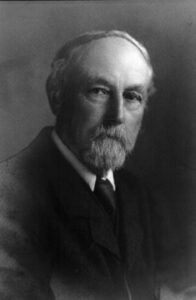
The Humanitarian League is a Society of thinkers and workers, irrespective of class or creed, who have united for the […]
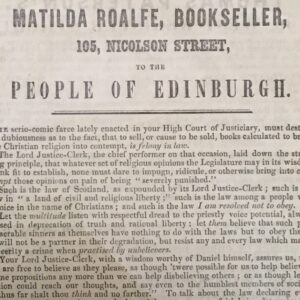
I will never voluntarily obey any law which is an outrage on human reason. Matilda Roalfe Matilda Roalfe was an […]
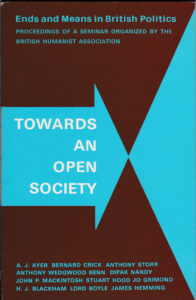
I think that believing in the brotherhood of man is not just a matter of signing these letters, it is […]